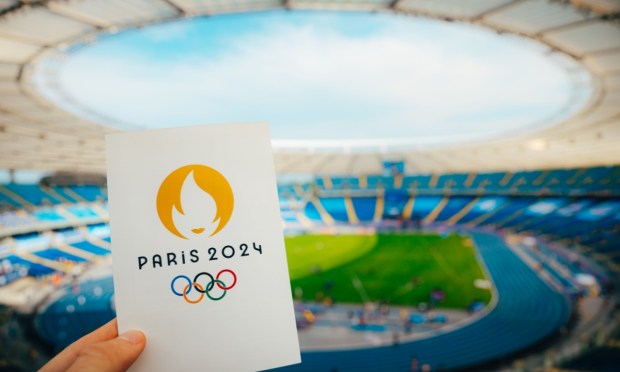
Artificial intelligence (AI) is set to transform the landscape of the 2024 Paris Olympic Games, ushering in a possible wave of technological advancement and operational efficiency.
Guided by the International Olympic Committee (IOC) and its Olympic AI Agenda, AI initiatives will encompass protecting athletes from online threats, enriching broadcast experiences with dynamic multilingual highlights and even tackle energy management, according to IOC President Thomas Bach.
“The IOC will use AI at the Olympic Games Paris 2024, in different areas,” Bach said in a statement. “A very important one is safeguarding from cyber abuse since we expect about half a billion social media posts during these Games. AI will also be used to create highlights videos in multiple formats and languages during these Games. We are also using AI to make the Olympic Games more sustainable, through a very sophisticated first-ever data capture and energy management system.”
Behind the scenes at the Olympics, set to start Friday (July 26), AI-driven digital twinning technology is set to streamline operational planning by simulating venue scenarios, optimizing resource allocation, and ensuring seamless event execution. This collaborative effort, led by Atos and a consortium of technology experts, aims to create a fully connected and secure environment for the Paris Games.
Ilario Corna, the IOC’s chief technology officer, emphasized the athlete-centric approach of the Olympic Games, highlighting new AI-powered initiatives aimed at protecting athletes from online abuse and enhancing their experience. These include a monitoring system to flag abusive social media messages and a new chat service on the Athlete365 platform for quick access to information on topics like social media guidelines and anti-doping rules.
“For planning, we are now working with our partner Intel using the concept of digital twinning, or digital representations of venues so we can foresee, for example, where we would need power, where we would need to place cameras, and if there could be any accessibility issues — all without needing to be on site every time,” Corna said.
Atos, the Olympic Movement’s worldwide IT partner, will coordinate a team of 15 technology partners comprising more than 2,000 experts, all working to make the Olympic and Paralympic Games Paris 2024 fully connected, secure and digitally enabled, Corna added.
The Olympic Broadcasting Services (OBS), in partnership with Alibaba Cloud, will leverage AI to enrich storytelling through enhanced replay systems and real-time data analytics across 21 sports. This partnership not only enhances viewer engagement but also reduces the Games’ environmental footprint by transmitting content over the cloud.
The IOC is embracing digitalization to expand its global reach and elevate the 2024 Paris Games, aiming to create a lasting impact on the city and enhance the Olympic ecosystem through innovative digital strategies. This strategic initiative reinforces the IOC’s commitment to integrating innovative technology across every aspect of the Olympic Games, setting a new standard for future global sporting events.
In keeping with the theme of digitization, the IOC has approved the creation of the Olympic Esports Games, marking a significant leap into the digital landscape after years of deliberation.
Scheduled for its inaugural event in Saudi Arabia in 2025, this decision signifies the IOC’s adaptation to the digital era while upholding traditional Olympic values. Esports, distinct from the Summer or Winter Games, will feature specific titles and a structured qualification process, highlighting the IOC’s efforts to connect with younger audiences and evolve alongside the global rise of competitive gaming.
Bach noted the historical significance of the Olympic Esports Games.
“This is truly a new era for the IOC,” Bach said in a statement. “With the confirmation by the IOC Session of the creation of the Olympic Esports Games, we are keeping up with the pace of the digital revolution. The esports community, represented in our Esports Commission, has enthusiastically engaged with this initiative. This is further proof of the attractivity of the Olympic brand and the values it stands for among young people.”
Viewers can also get involved with the Olympics through digital means.
Comcast unveiled on Wednesday (July 24) its “Passport to Paris” for Xfinity customers, an initiative aimed at enhancing engagement with NBCUniversal’s coverage of The 2024 Paris Olympic and Paralympic Games.
This experience introduces a “watch to unlock” feature exclusively for Xfinity Rewards members, enabling them to earn digital passport stamps by watching live Olympics coverage on NBCUniversal’s networks and Peacock streaming platform. Participants can further engage through interactive quizzes and polls, accumulating stamps that unlock escalating rewards, including a limited-edition Olympic Games 2024 pin for the first 20,000 participants.
Pooja Kapadia, vice president of customer loyalty and rewards at Comcast, highlighted the benefits available to Xfinity Rewards members, noting that the initiative is a groundbreaking way to connect with this global event.
“One of the great benefits of being a Xfinity Rewards member is exclusive access to new products and features like ‘Passport to Paris,’” Kapadia said. “The Paris Olympics are a great opportunity to create a first-of-its-kind experience centered around the most anticipated event of the year.”
“Passport to Paris” is part of Comcast’s broader enhancements for The Olympic Games, including enhanced 4K viewing, interactive athlete experiences, personalized playlists and more, underscoring their commitment to evolving the home entertainment experience in response to changing consumer preferences.
The Paris Games are actively addressing the environmental impact of digital technology throughout the Games’ organization, from computers to televisions, websites and apps. Emphasizing responsible sourcing and ecodesign, the committee has implemented strategies to optimize equipment volumes, promote leasing over purchasing, and ensure a sustainable second life for all digital resources.
Key initiatives include leasing over 70% of equipment, with a commitment that 100% of purchased items will be repurposed or refurbished post-Games. Efforts to reduce carbon footprints extend to software and app development, integrating ecodesign principles to minimize environmental impact while enhancing user experience. Planning for equipment’s second life underscores the Games’ dedication to sustainability, partnering with entities like SCC and Recycléa for responsible IT equipment recovery and reuse.